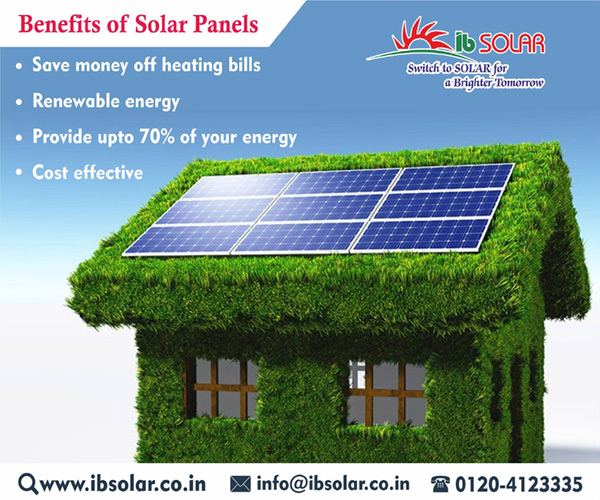Experience Affordable Clean Energy with Simply Solar Illinois
How Solar Power Can Help You Conserve Cash and Decrease Your Carbon Footprint
The assimilation of solar power into your power portfolio provides an engaging possibility for both financial savings and ecological stewardship. As numerous federal government motivations end up being offered, the question develops: how can one effectively navigate the initial investments and recurring advantages of solar technology to maximize both financial and environmental gains?
Comprehending Solar Energy Financial Savings
While the transition to solar power frequently includes a preliminary financial investment, understanding solar energy cost savings is essential for property owners and businesses alike. Solar power systems can dramatically lower electricity costs by harnessing the sun's power, translating into significant lasting financial advantages. By generating their own electricity, individuals lessen dependence on grid power, which is subject to rising and fall costs. These cost savings can build up in time, often causing a rapid roi.
In addition, solar energy systems might get approved for various monetary motivations, including tax credit scores and refunds, even more enhancing their cost-effectiveness. The availability of internet metering allows individuals to market excess power back to the grid, creating an additional revenue stream. These elements add to the overall cost savings linked with solar energy.

Along with direct monetary financial savings, solar power offers the included advantage of enhancing residential property worth. Homes furnished with solar panels are frequently much more appealing to customers, as they assure lower power prices - Simply Solar Illinois. Recognizing these elements is essential for any individual thinking about solar power, as it highlights not just the prospective financial gains, yet likewise the broader environmental and economic benefits of taking on sustainable power services
Preliminary Expenses vs. Long-Term Perks
When reviewing solar energy, it is essential to consider the preliminary costs against the long-term advantages. The in advance investment for photovoltaic panels, installation, and related tools can be substantial, frequently ranging from $15,000 to $30,000, depending on the system dimension and home energy requirements. This preliminary expense might discourage some property owners; nevertheless, it is crucial to take into consideration the potential cost savings gradually.
As soon as installed, solar power systems can substantially minimize or perhaps eliminate monthly power expenses, causing significant long-lasting monetary advantages. Research studies show that house owners can conserve anywhere from $10,000 to $30,000 over the life-span of their planetary system, usually 25 years. In addition, many states offer motivations, tax credit histories, and discounts that can counter preliminary expenses, making solar a lot more easily accessible.

Decreasing Your Carbon Impact
Lowering your carbon footprint is a vital consideration in today's environmentally aware culture, and adopting solar power is among the most effective approaches to achieve this objective. Solar energy is a clean, renewable source that dramatically diminishes reliance on fossil fuels, which are major factors to greenhouse gas emissions.

Furthermore, the extensive adoption of solar modern technology motivates the advancement of green work and supports developments in power storage and effectiveness. The more people and companies purchase solar power, the higher the cumulative decrease in carbon emissions, promoting a cleaner atmosphere for future generations.
Federal Government Rewards and Discounts
Adopting solar power not only benefits the setting however can also result in considerable monetary savings, specifically with the availability of government incentives and More hints discounts. Various federal, state, and neighborhood programs are designed to urge home owners and businesses to purchase solar energy systems, making the shift extra economical.
Among one of the most popular motivations is the Federal Financial Investment Tax Obligation Credit (ITC), which allows solar system proprietors to subtract a considerable percent of the setup costs from their government tax obligations. This reward has actually been crucial in reducing the in advance expenses related to solar power systems. Furthermore, many states use their own tax debts, gives, and rebates that can better boost savings.
Furthermore, some local federal governments give real estate tax exceptions for solar installments, making certain that homeowners do not deal with enhanced property tax obligations as an outcome of their renewable resource financial investments. Energy business might additionally provide rewards, consisting of web metering and feed-in tariffs, which allow solar power users to market excess power back to the grid.
Picking the Right Planetary System
Choosing the proper planetary system is crucial for optimizing power effectiveness and he has a good point economic benefits. The choice rests on numerous variables, consisting of energy needs, budget, and available room. Homeowners need to start by assessing their power consumption to figure out the system size required for optimal performance.
Following, think about the various kinds of solar modern technologies offered. Simply Solar Illinois. Photovoltaic (PV) panels are one of the most typical, converting sunshine directly into electrical energy, while solar thermal systems focus on home heating water. Each type has distinct benefits browse around this web-site depending on specific needs
Budget factors to consider are additionally extremely important. Preliminary installment costs can differ significantly, so it is essential to compare quotes from several carriers and explore financing alternatives. Federal government incentives and discounts can better minimize the monetary problem, making planetary systems more obtainable.
Conclusion
In recap, solar energy provides a sensible service for accomplishing considerable price financial savings while concurrently reducing carbon emissions. The initial financial investment, though substantial, yields substantial long-lasting economic advantages, with potential financial savings ranging from $10,000 to $30,000 over 25 years. The environmental benefits of solar power add to lasting techniques crucial for combating environment adjustment. Government rewards improve the expediency of solar innovation adoption, encouraging a transition in the direction of a cleaner, much more financially effective power source.